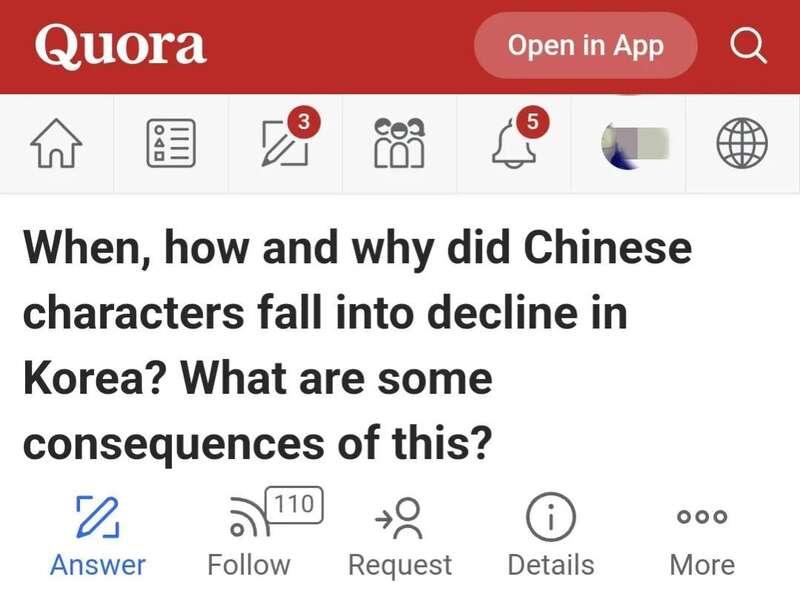
问题

韩国网友Minneola Leem的回答
• Decrease of "Han characters" in Korean written language
•韩国书面语中“汉字”的减少
This phenomenon has only occurred in recent decades because of the promotion of "pure" Korean, which makes young people less and less able to understand Chinese. For example, I grew up reading newspapers full of Chinese; For a girl who aspires to become a law major, understanding Chinese characters is considered a crucial requirement. For example, the Civil Law is full of Chinese characters, and law students should use Chinese characters to draft laws in the exam. If you compare the following newspapers, you can see that the proportion of Chinese characters is declining rapidly.
这个现象也是近几十年才发生的,其原因是提倡“纯正”韩语,年轻人越来越不懂汉语。例如,我在阅读着充满汉文的报纸长大;对于一个立志成为法律专业的女孩来说,了解汉字被认为是一个至关重要的要求,比如《民法》中充满了汉字,法律专业的学生在考试中应该使用汉字进行法律起草。如果你比较一下下面的报纸,你可以看到汉字比重在迅速下降。
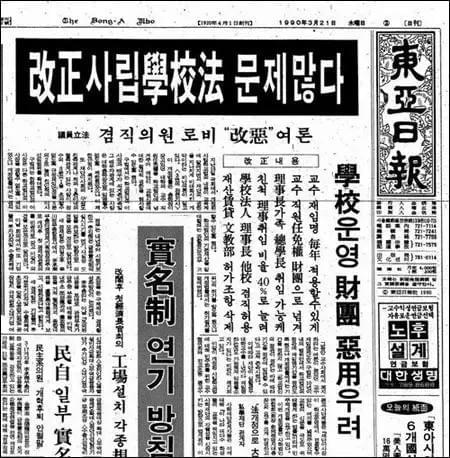
20世纪90年代的东亚日报
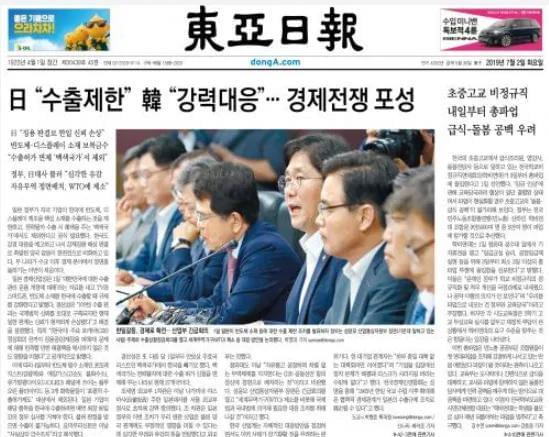
2013年的东亚日报
In about 20 years, the practice of using Chinese characters in Korean writing has rapidly disappeared. Nowadays, even the drafting of laws does not have Chinese characters.
在二十年左右的时间里,在韩语写作中使用汉字的做法迅速消失。如今,甚至法律的起草都没有汉字。
• Korean people's understanding of "Chinese characters"
•韩国人对“汉字”的了解
This varies greatly with age and education level. In general, the older generation are more familiar with Chinese characters. And obviously, learned people are proficient in Chinese.
这一点因年龄、教育程度等不同而有很大差异。总的来说,老一辈人更熟悉汉字。而且显然,有学问的人精通汉文。
In the Korean education system, Chinese characters are no longer a compulsory course, but students are encouraged to learn them. There is a standardized Chinese learner's license exam - I have a certificate, which contains 3500 characters. Many children take these tests at the urging of their mothers, but due to the rapid decline in use, these tests have little practical value.
在韩国的教育体系中,汉字不再是必修课,但仍鼓励学生学习。有标准化的汉语学习者执照考试-我有级证书, 它包含3500个字符。许多幼儿在母亲的催促下参加这些考试,但由于使用量迅速下降,这些考试没有太大的实用价值。
However, one of the advantages of learning Chinese characters is that it is easy to learn Korean and Chinese classical literature because Chinese characters are a kind of preserved Chinese before being simplified into simplified characters. It is said that in the past, Chinese and Korean intellectuals could communicate perfectly by handwriting, even though their spoken languages were different. I like to learn Korean classical prose written by Korean intellectuals, although it is not as easy for me to read as modern prose.
不过,学习汉文字的一个好处是,因为汉文字在被简化为简体字之前是一种保留下来的汉语,所以学习韩国和中国古典文学很容易。据说,在过去,中国和韩国的知识分子能够通过手写进行完美的交流,即使他们的口头语言不同。我喜欢学习韩国知识分子写的韩国古典散文,尽管我读起来不像现代散文那么容易。
• Japanese dominated the translation and application of western terms
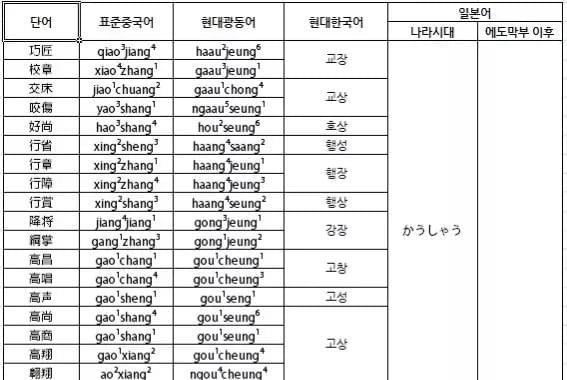
•日本人主导了西方术语的翻译和应用
In fact, I had the opportunity to read an academic article on this issue last semester; When I come back to edit this answer, I will post the title of the article. The decline of Chinese characters on the Korean Peninsula was related to Japanese colonialism in East Asia at the beginning of the 20th century.
事实上,上学期我有机会读了一篇关于这个问题的学术文章;当我回来编辑这个答案时,我会把文章的标题贴出来。汉字在朝鲜半岛的没落与20世纪初日本对东亚的殖民主义有关。

• To put it simply, the older generation has a better understanding of Chinese characters, mainly because most books and publications used Chinese characters when they were young. As people publish below, newspapers use a large number of Chinese characters to emphasize the meaning of words (many words sound the same in Korean, but have different meanings). For example, the word "gajeong" (family, family) sounds the same as "suppose".
•简单地说,老一辈对汉字有更多的了解,主要是因为大多数书籍和出版物在年轻时都使用了汉字。正如人们在下面发布的那样,报纸使用了大量的汉字来强调单词的含义(有很多单词在韩语中听起来相同,但含义不同)。例如,单词가정 (gajeong,家人,家庭) 发音与가정 (假定) 意思是“假设”一样。
• Because there are too many words from Chinese, most publications use Chinese characters. However, due to the nationalist movement in recent decades, many publications now indicate or do not mention Chinese characters in brackets.
•由于有太多源自汉语的单词,大多数出版物使用汉字。然而,由于近几十年来的民族主义运动,许多出版物现在都在括号中注明或根本不提及汉字。
• In sharp contrast, Korean newspapers Chosun Ilbo and Chosun Ilbo. The former uses Chinese without marginal notes (most of them are headlines), while Korea Daily does not use them at all (to make their articles more readable).
•与之形成鲜明对比的是韩国报纸《朝鲜日报》和《韩国报》。前者使用的汉文没有旁注(大多是标题),而《韩国报》根本不使用它们(为了让他们的文章更可读)。
• Despite this trend, Korean society still emphasizes learning Chinese characters. Public education includes Chinese subjects, and you can even choose it as the subject of college entrance examination. This course includes intermediate Chinese and classical Chinese poetry (Chinese or Korean poets).
•尽管有这样的趋势,韩国社会仍然强调学习汉字。公共教育包括汉文科目,你甚至可以选择它作为大学入学考试的科目。该科目包括学习中级汉文和学习文言文诗歌(中国诗人或韩国诗人)。
• It is important to teach children Chinese, although it is certainly not as good as English. Nevertheless, parents are eager to let their children take part in Chinese classes and encourage them to learn at least 1000 Chinese characters.
•教幼儿汉文很重要,尽管肯定不如教英语优先。尽管如此,家长们还是渴望让孩子们参加汉文班,并鼓励他们学习至少1000个汉字(千字文)。
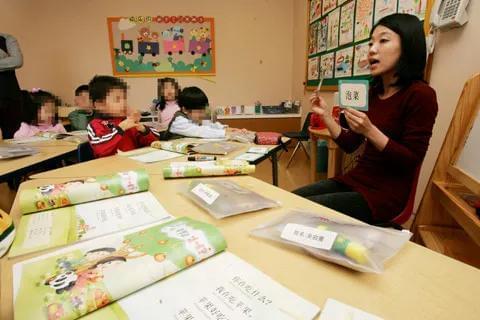
• Some companies like Samsung also give priority to the Chinese character examination. Some universities stipulate that they must take the Korean examination when they graduate (for example, Korean universities).
•像三星这样的一些公司也优先考虑汉字考试。一些大学规定毕业时必须参加韩文考试(例如韩国大学)。
• The younger generation really do not understand Chinese characters, but my prospect is that it is still an important part of Korean culture. The basic understanding of Korean vocabulary does include the basic understanding of Chinese.
•年轻一代确实不太懂汉字,但我的前景是,它仍然是韩国文化的重要组成部分。对韩语词汇的基本理解确实包括对汉语的基本理解。
• When Koreans take risks to learn Chinese or Japanese, this kind of education is also beneficial to them, because many words are similar and are based on Chinese characters.
•当韩国人冒险学习汉语或日语时,这种教育对他们也是有益的,因为许多单词都是相似的,并且都是基于汉字。

韩国网友宋基云的回答
This is a complicated answer. I will give a brief answer first, and then discuss it carefully.
这是一个复杂的答案,我会先做出简短的回答,然后再作仔细讨论。
The short answer is: Contrary to what the "expert" said, Chinese characters have never been widely used by the Korean people. You may say, "Wait! This is impossible! Chinese characters have been used throughout Korean history!" The last sentence is true, but it only applies to intellectuals and literati. In fact, the idea that Korean people/ordinary people widely use Chinese characters as the main writing form has never been true, which is why Chinese characters are so easy to decline in Korea.
简短的回答是:与“专家”所说的相反,汉字从未被朝鲜人民普遍使用过。你可能会说,“等等!这不可能!汉字在整个韩国历史上都一直被使用!”最后一句确实没错,但只适用于知识分子和文人。事实上,韩国大众/普通人广泛使用汉字作为主要书写形式的想法从来都不是真的,这就是为什么汉字在韩国如此容易衰落的原因。
Let me clarify the history of the use of Chinese characters. Korean scholars have been using Chinese characters since the Three Kingdoms Period of Korea (57 B.C. to 668 A.D.). We have confirmed the local evidence that Korean people use Chinese characters. For example, my graduate professor said that Chinese characters are one of the oldest Korean writing forms in Korean history. But what I want to clarify is that the Korean people can't read until modern times, because until the 20th century, all East Asian countries did not have the concept of "mass literacy".
让我澄清一下汉字/한자使用历史,自朝鲜三国时代(公元前57年至公元668年)以来,朝鲜文人一直使用汉字,我们已经证实了朝鲜人使用汉字的本土证据,例如,我的研究生教授表示,汉字是朝鲜历史上最古老的朝鲜人书写形式之一。可我想澄清的是,直到现代,朝鲜人民才识字,因为直到20世纪,所有东亚国家都没有“大众识字”的概念。
Here, I put forward a view that many people in modern times tend to forget that mass literacy is very difficult, especially in East Asian society. In ancient times, in Korea, China, Vietnam and Japan, the ruling class was usually a mixture of scholar bureaucrats, nobles and soldiers. In all societies, the merchant class was usually looked down upon.
在这里,我提出了一个观点,现代许多人往往忘记了大众扫盲是很难的一件事,尤其是在东亚社会。在古代,朝鲜、中国、越南和日本,统治阶级通常是士大夫、贵族和军人的融合体,在所有社会中,商人阶层通常都被看不起。
If you are an East Asian, most of your ancestors (more than 80% – 90%) may be completely illiterate or semi illiterate, and may meet the primary/secondary school level of the modern education system. This is the point I want to return to. Most Koreans do not understand Chinese characters. For Koreans, Chinese characters are a foreign language.
如果你是东亚人,你的大多数祖先(80%–90%以上)可能是完全文盲,或者半文盲,可能符合现代教育体系的小学/中学水平。这就是我要回到的重点,绝大多数韩国人都不懂汉字,对韩国人来说,汉字是一种外国文字。
Because of this, as an excellent Confucian monarch, Emperor Sejong of Korea decided that the Korean people need their own real local characters to write their own language. There are two reasons why he did this. Modern scholars believe that, first of all, he actually cares about ordinary people and hopes that his people can read, so that they can read the Romance of the Three Kingdoms, the Analects of Confucius and other Chinese literature. Why does he want to cultivate a group of educated people? When civilians receive education, society will usually become more elitist, because the status of the deep-rooted elite will be shaken.
正因为如此,作为一位优秀的儒家君主,朝鲜世宗大帝决定,朝鲜人民需要自己真正的本土文字来书写自己的语言。他这样做有两个原因,现代学者认为,首先,他实际上关心普通民众,并希望他的人民能够识字,以便他们能够阅读《三国演义》、《论语》等中国文学,他为什么要培养一群有文化的民众?当平民接受教育时,社会通常会变得更加精英化,因为根深蒂固的精英阶层的地位便会被动摇。
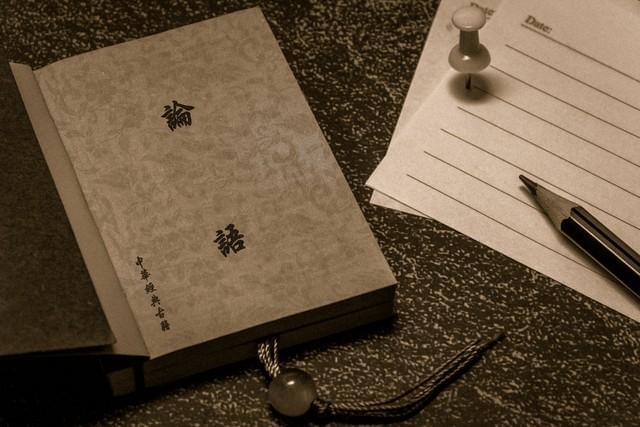
Shizong is the most important decision in Korean history. He commissioned his scholars to create Korean, which is considered to be the greatest ruler of the Korean Dynasty (1392 – 1910) and one of the two kings mourned by Koreans.
世宗是朝鲜历史上最重要的决定,他委托他的学者创作了朝鲜文,被认为是朝鲜王朝(1392–1910)最伟大的统治者,也是朝鲜人追悼的两位君主之一。
For whatever reason, Korean was strongly opposed by Confucian bureaucrats and landlords and nobles. They claimed that Shizong's idea was crazy, which was a betrayal of the Daming Dynasty, a firm supporter of Korea. The adoption of Korean would make Korea more barbaric, less Confucian/civilized, and the masses were too brutal. It was dangerous to educate them. For all these reasons, Korean almost faded out of history and died in its cradle.
无论出于何种原因,朝鲜文都遭到了儒家官僚和地主贵族的强烈反对,他们声称世宗的想法是疯狂的,这是在背叛作为朝鲜坚定支持者——大明王朝,朝鲜文的采用将使朝鲜变得更加野蛮,不那么儒家/文明,群众过于残暴,教育他们是危险的。由于所有这些原因,朝鲜文几乎淡出了历史,几乎在摇篮中死去。
So, how did Korean survive and finally overthrow the deep-rooted role of Chinese characters as a knowledge language? This happens in two stages.
那么,韩文是如何生存下来并最终推翻了汉字作为知识语言的根深蒂固的角色的呢?这是分两个阶段发生的。
The first stage: 1443 – 1598 (early central Korea)
第一阶段:公元1443–1598年(朝鲜中部早期)
When Korean was issued in 1443, it gradually began to attract attention among those who obviously could not read Chinese. These people are a mixture of civilians and social oppressed people. They are usually unwilling to learn to read and write. Poor people often want to create stories and stories to entertain themselves, and they also use writing as a weapon to criticize elites and Buddhists.
《朝鲜文》于公元1443年发行时,它在那些显然不会读汉文的人中慢慢地开始受到关注。这些人是平民和社会受压迫者的混合体,她们通常不愿意学习阅读和写作,穷人,她们经常想创造故事和故事来娱乐自己,同时也将写作作为批判精英和佛教徒的武器。
The last turning point to consolidate the status of Korean as a common language was the Japanese invasion of Korea (1592 – 1598). During the Japanese invasion, the Korean Rebel Army used Korean as a means of communication between various guerrillas, as well as between literati and civilians. This was effective, because it made it difficult for the Japanese to understand the exchange. Many Korean scholars often used Korean+Chinese in their declarations to Japan, in order to obtain widespread popular support.
巩固朝鲜文作为普通文字地位的最后一个转折点是日本入侵朝鲜(1592–1598)。在日本入侵期间,朝鲜义军部队使用朝鲜文作为各种游击队之间以及文人和平民之间的交流手段,这是有效的,因为这使得日本人很难理解交流,许多朝鲜学者在对日宣言中经常使用朝鲜文+汉语,以获得广泛的民间支持。
After the first stage, the Chinese language will not disappear. Although the Korean language continues to be widely used, we now have two coexisting languages.
在第一阶段之后,汉文还不会消失,尽管朝鲜继续广泛使用汉文,但现在我们有了两种共存的语言。
The second stage: • Time: 1876 – 1968 (late Korean Kingdom, Japanese colonial period and the second north-south period)
第二阶段:•时间:1876–1968年(朝鲜王国晚期、日本殖民时期和第二南北时期)
• Status: Promotion of Korean instead of Chinese during the Jiawu peasant uprising, Korean independence movement, Korean abolition of Chinese characters, and stagnation of Chinese characters in the Republic of Korea
•状况:在甲午农民起义期间推广朝鲜文而非汉文、朝鲜独立运动、朝鲜废除汉字、大韩民国的汉字停滞不前
• Reasons: the rise of the Japanese empire, the collapse of the Manchu and Qing dynasties, and the arrival of modernity
•原因:日本帝国的崛起、满清的崩溃、现代的到来
• Many answers do not properly cover this point. The first promotion of Korean instead of Chinese characters was not in the post Korean War period, when North Korea tried to eliminate all "foreign influences" in Korean culture by deleting Chinese characters, while the Republic of Korea tried to delete Korean because it was too "outdated" to use. But the first major change was actually during the Garbo reform from 1894 to 1896.
•很多答案都没有恰当地涵盖这一点,第一次推广韩文而非汉字并非在朝鲜战争后时期,当时朝鲜试图通过删除汉字来消除朝鲜文化中的所有“外来影响”,而大韩民国则试图删除韩文,因为它太“过时”,难以使用。但第一次重大变更实际上是在1894年至1896年的加博改革期间。
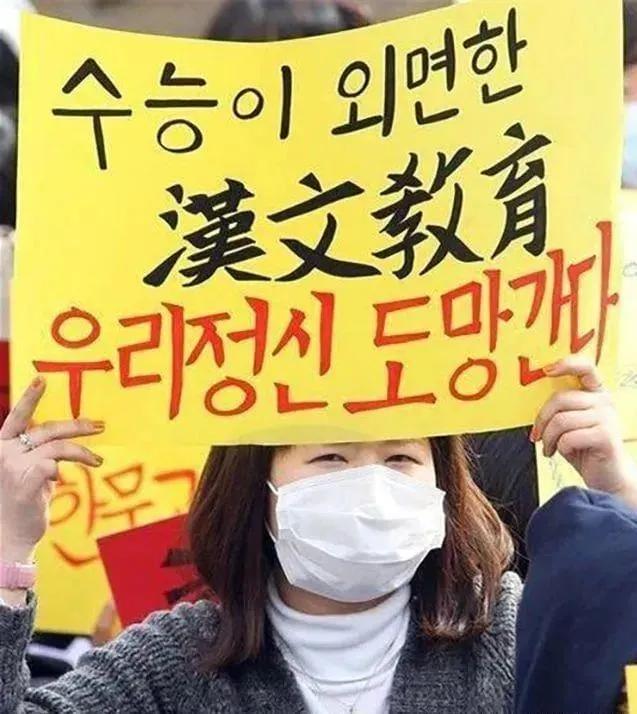
• Gabor reform is a series of landmark reforms carried out by Gaozong of North Korea. Although it is a late reform, he tried to quickly reform the tottering North Korea during his wife Queen Min was assassinated by Japanese/pro Japanese Korean collaborators, the devastating Dongxia Uprising and the decisive Sino Japanese War. There are many reforms, such as ending slavery, prohibiting torture, and declaring that North Korea ends its tributary relationship with China, but the relevant provisions
•加博改革是朝鲜的高宗进行的一系列具有里程碑意义的改革,尽管是较晚的改革,他试图在其妻子敏王后被日本/亲日朝鲜合作者暗杀、毁灭性的东夏起义和决定性的中日战争期间迅速改革摇摇欲坠的朝鲜。有许多改革,如结束奴隶制、禁止酷刑、宣布朝鲜结束与中国的朝贡关系等,但相关条款…
• Article 5 of the Gabor reform stipulates: "All official documents shall be written in Korean rather than Chinese."
•加博改革的第五条规定:“所有官方文件均应使用朝鲜文而非汉字书写。”
• This is the first time that the Korean government tried to promote Korean rather than Korean for many reasons, but the two main reasons are that the decline of modern China made Korea more eager to maintain its cultural independence, but more importantly, the rise of Japan prompted Korea to try to maintain its own culture.
•这是朝鲜政府第一次尝试推广朝鲜文而非朝鲜文,原因有很多,但两个主要原因是近代中国的衰落使朝鲜更加渴望维护其文化独立,但更重要的是,日本的崛起促使朝鲜在文化上试图维护自己。
When Korea was annexed by the Japanese Empire in 1910, Korean activists clearly publicized Korean in Korean education, because Korean is a native Korean language, and Japanese use the same Chinese characters as Koreans in history. The use of Korean became a form of resistance to Japan, just as it was during the Imjin War, so Chinese characters gradually began to decline for a long time.
1910年朝鲜被日本帝国吞并时,朝鲜活动人士在朝鲜教育中明确宣传了朝鲜文,因为朝鲜文是一种土生土长的朝鲜文字,而日本人使用的汉字与韩国人历史上使用的一样。朝鲜文的使用成为了一种抵抗日本的形式,就像在伊姆津战争期间一样,因此,汉字逐渐开始了长期的衰落。
• The Koreans decided to completely eliminate all "foreign" influences in Korean culture and eliminate all Chinese characters from Korean language north of Line 38, which is ironic, because the main support source of Korea is China, and Chinese characters come from China. At the same time, in the Republic of Korea, until Park Chung Hee's Third Republic, Chinese characters were still widely taught. Park Chung Hee could be said to have realized the modernization of North Korea. At that time, he carried out a series of comprehensive reforms, including the promotion of Korean, mainly because Korean was more efficient for Koreans.
•朝鲜人决定彻底消除朝鲜文化中的所有“外来”影响,并通过从38线以北的朝鲜语中消除所有汉字,这非常讽刺,因为朝鲜的主要支持来源是中国,汉字来自中国。与此同时,在大韩民国,直到朴正熙(Park Chung Hee)的第三共和国,汉字仍然被广泛教授,朴正熙可以说是实现了朝鲜的现代化,当时他进行了一系列全面的改革,包括推广韩文,这主要是因为韩文对韩国人来说使用效率更高。
• Park Chung hee's desire to reform and modernize South Korea has had a great impact on South Korea.
•朴正熙对韩国进行改革和现代化的愿望对韩国产生了巨大影响。
• What are the consequences?
•那么后果是什么?
• The Chinese character is declining on the Korean Peninsula, but it has not really disappeared. I think it is still the portrayal of the past South Korea. In fact, the extensive understanding of Chinese characters only lasted for two or three generations. My grandfather's generation could fluently use Japanese and Korean (Han characters/Korean) from 1920s to 1940s, so Chinese characters fell back a step. The post-war generation (my parents' generation) was very fluent in Chinese/Mandarin (usually the educated people from the 1950s to the 1980s). The younger generation, as well as the younger generation earlier and earlier (from the 1980s to the 2000s), are still learning Chinese at school, but most of them know words, not Chinese grammar.
•汉字正在朝鲜半岛衰落,但它并没有真的消失,我认为它实际上仍然是过去韩国的写照。事实上,对汉字的大量了解只持续了两三代人,我的祖父一代人在1920年代到1940年代都能流利地使用日语和韩语(汉字/朝鲜文),因此,汉字后退了一步。战后一代(我父母那一代)的汉语/汉文非常流利(通常是1950年代至1980年代受过教育的人)。年轻一代以及稍早和稍早(1980年代至2000年代)的年轻一代仍在学校学习汉语,但他们大多了解单词,而不了解汉语语法。
• The importance of Chinese characters has declined relatively, because government functions are now obviously used in Korean rather than Chinese, but this shows that Chinese characters are still an important remnant of Korean knowledge and culture. Most Korean language professors, as well as most intellectuals in humanities, social sciences, history and other fields, are very proficient in Chinese. I know this because I have communicated with several Korean linguists and journalists, and Chinese is still widely studied. I know that Koreans complain about "losing Chinese characters", but if you want to tell the truth, the only large-scale literacy/education period in which Koreans generally used Chinese characters was from 1945 to the 1980s.
•汉字的重要性相对下降,因为政府职能现在明显被用于朝鲜文,而不是汉语,但这表明汉字实际上仍然是韩国知识文化中的一个重要残余。大多数韩国语言教授,以及人文、社会科学、历史等领域的大部分知识分子都非常精通汉语,我知道这一点是因为我与几位韩国语言学家和记者进行过交流,汉语仍然被广泛研究。我知道韩国人抱怨“失去了汉字”,但如果你想说真的,唯一一个韩国人普遍使用汉字的大规模扫盲/教育时期是1945年至1980年代),历史趋势一直是“知识分子使用汉字,平民使用朝鲜字”,除了它在政府功能中的使用率下降之外,这是一种历史趋势的回归。
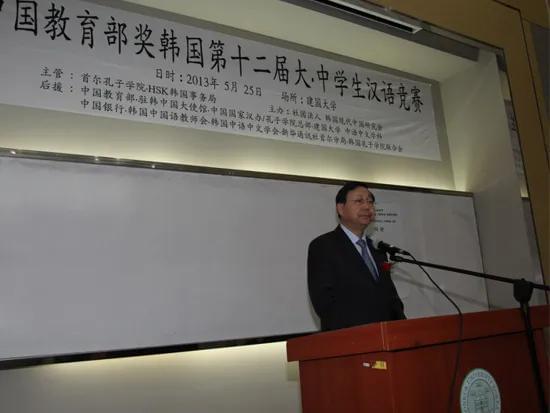
• I understand why, in the aftermath of the Japanese rule, they were angry about the influence of foreign countries on Korean, but removing Chinese characters would eliminate an important cultural heritage, and Chinese characters are actually a good example of language work. People think that culture and language are single and pure, but all languages actually use elements of each other. It is natural for languages to communicate in terms of words, grammar, poetry, etc., because this is the operation mode of actual culture, not cultural isolation.
•我理解为什么在日本统治时代的余波中,他们对外国对朝鲜语的影响感到愤怒,但去除汉字会消除一项重要的文化遗产,而且汉字实际上是语言工作的一个很好的例子。人们认为文化和语言是单一的、纯粹的,但所有语言实际上都采用了彼此之间的元素,语言在单词、语法、诗歌等方面进行交流是很自然的,因为这是实际文化的运作方式,而不是文化孤立。
• In fact, except for a very short window of Korean history at the end of the 19th century and the 20th century, the Korean people have never been exposed to Korean, because most people in the modern world began to read in the 19th century at the earliest. Since the early middle of the Korean Dynasty, Korean has become the language of the masses and the oppressed (women, Buddhists, civilians). For most of Korean history, Chinese characters have been the deeply rooted language of the elite.
•事实上,除了19世纪末和20世纪韩国历史的一个非常短暂的窗口外,朝鲜的大众从未接触过朝鲜文,因为现代世界的大多数人最早在19世纪才开始识字。从朝鲜王朝中期早期开始,朝鲜语就成为大众和被压迫者(女性、佛教徒、平民)的语言,而在朝鲜历史的大部分时间里,汉字一直是精英阶层根深蒂固的语言。
• The relative importance of Chinese characters has declined, but at least in the Republic of Korea, the ancient parallel relationship between Chinese characters and Korean continues.. Apart from government officials, Chinese is still the language of scholars, intellectuals, scholars and poets, while Korean is still the language of civilians, the masses and the oppressed.
•汉字的相对重要性有所下降,但至少在大韩民国,汉字和朝鲜文的古老平行关系仍在继续。。除去政府官员,汉文仍然是学者、知识分子、学者和诗人的语言,而韩语则仍然是平民、群众和被压迫者的语言。

